The advent of solar energy as a viable, cost-effective power source presents a myriad of benefits for a diverse range of stakeholders. From individual homeowners to large-scale corporations, and from public institutions to the global ecosystem at large, the advantages of harnessing the sun’s energy extend well beyond simple electricity generation. With a surge in green initiatives and increasing affordability, solar energy is shaping up to become a key component in our move towards sustainable living and operation. In this in-depth exploration, we delve into the specific benefits that different groups and sectors can enjoy from adopting solar energy.
Almost anyone can benefit from solar energy, but the degree and nature of these benefits can vary depending on numerous factors. Here are some categories of people and organizations who stand to gain significantly from solar energy:
- Homeowners: Homeowners can benefit by installing solar panels on their rooftops or in their yards. Solar energy can reduce their dependency on traditional utility grids, cut down electricity bills, and even generate income if surplus energy is sold back to the grid. Solar panels can also increase the value of a property.
- Businesses and Industrial Facilities: Businesses of all sizes and across all sectors can benefit from solar energy. Installing solar panels can stabilize energy costs and provide energy security, as it reduces reliance on grid electricity that can be subject to price fluctuations. Companies also benefit from the public relations perspective, as using renewable energy demonstrates a commitment to sustainability, which is increasingly important to consumers and stakeholders.
- Farmers and Agricultural Sectors: Farmers can install solar panels on unused land or over canopies to power their operations, including irrigation systems, machinery, and on-site buildings. Some farmers can use solar power in aquaponics and hydroponics systems, too. Additionally, agro photovoltaics is a concept where solar panels are installed above crops, leading to simultaneous crop and solar production.
- Schools and Educational Institutions: Schools can significantly cut their operational costs by installing solar panels. It also serves as a valuable educational tool, introducing students to renewable energy concepts and sustainability.
- Governments and Public Institutions: Governments can utilize solar energy for public buildings, street lights, or community projects. It not only reduces public spending on energy but also sets an example for individuals and businesses in the community. Moreover, governments can earn carbon credits by using solar energy, which can be used to meet climate goals or traded internationally.
- Nonprofits and Community Groups: Nonprofits can reduce operating expenses with solar energy. They can also spearhead community solar projects, where multiple participants benefit from a shared solar panel system.
- Environment and Global Ecosystem: Beyond specific human groups, the environment and the planet also benefit from the use of solar energy. Solar energy is a renewable resource, meaning it won’t deplete over time. It produces no harmful emissions, helps to reduce the carbon footprint, and mitigates the effects of climate change.
- Underserved and Remote Communities: Solar energy can be a boon to remote or underserved areas where traditional grid electricity is unavailable or unreliable. Solar systems can be installed to power individual homes, medical facilities, schools, or entire communities.
- Utility Companies: Even traditional utility companies can benefit from solar energy. It provides an alternative power source during peak demand times, can be harnessed at the point of use reducing transmission losses, and allows for the development of diversified, resilient energy portfolios.
It’s important to note that while solar energy has extensive benefits, its adoption and efficiency can depend on factors like geographical location (solar intensity and duration), local energy prices, government incentives and regulations, and the upfront cost of solar panels and installation.
Homeowners
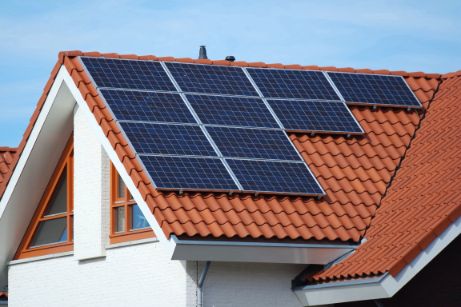
Homeowners constitute a substantial segment that can harness the benefits of solar energy. Installing solar panels on rooftops or yards allows homeowners to produce their electricity, significantly reducing dependency on traditional utility grids. This can be particularly useful during power outages or in areas where grid reliability is an issue.
One of the immediate benefits of solar energy for homeowners is the potential for significant savings on electricity bills. After the initial investment in solar equipment, the ongoing costs are generally quite low, especially when compared with traditional electricity costs. In fact, in regions with high energy rates or strong sunlight, the cost savings from solar energy can be substantial.
Furthermore, if the solar panel system generates more electricity than the home requires, the surplus energy can be sold back to the grid in areas where net metering is available. This not only offsets the costs of any grid electricity used when the panels aren’t producing electricity (e.g., at night) but can also turn into a revenue stream, providing economic benefits over the life of the system.
Solar panels can add considerable value to a property. Research has shown that homes equipped with solar energy systems have higher property values and sell more quickly than non-solar homes. Buyers are more willing to pay a premium for a solar home because of the reduced operating costs and environmental impact. The exact amount of value increase depends on several factors, including the size and quality of the solar system, and local market conditions.
Solar energy offers homeowners a way to reduce their energy bills, generate income, increase their property value, and contribute to a sustainable future. Given these advantages, solar power is an option worth considering for homeowners looking for an environmentally friendly, economically sound investment.
Businesses and Industrial Facilities
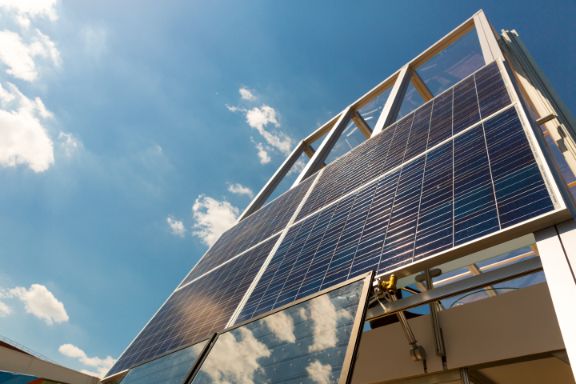
Businesses and industrial facilities, regardless of their size or sector, can significantly benefit from solar energy. One of the key benefits for businesses is the potential for stable, predictable energy costs. By generating their electricity, companies can guard against the unpredictable nature of energy prices and potential price hikes in the future. This not only helps in budgeting and forecasting but also provides a degree of energy independence.
Moreover, investing in solar energy can contribute to enhanced energy security. Industries often have high energy demands, and disruption in energy supply can lead to severe operational challenges. By deploying solar energy systems, businesses can ensure a constant and uninterrupted power supply, reducing reliance on grid electricity.
From a financial perspective, while the initial cost of installing solar panels can be high, the long-term savings can make it a sound investment. This is especially true considering the falling prices of solar technologies and various incentives and subsidies offered by governments worldwide. Solar panels have a lifespan of 25-30 years or more, meaning businesses can enjoy the benefits of reduced energy costs for many years after the system has paid for itself.
The use of renewable energy sources like solar power also offers businesses reputational advantages. As awareness and concern about climate change and environmental issues grow, consumers and stakeholders increasingly prefer companies that demonstrate a commitment to sustainability. Businesses that transition to renewable energy can therefore improve their public image, customer loyalty, and even their market share. Additionally, they can appeal to investors looking for socially responsible investment opportunities.
In the increasingly competitive global market, solar energy can give businesses a critical edge: a more sustainable, reliable, and cost-effective power source. Moreover, the adoption of solar energy aligns businesses with the global shift towards renewable energy, positioning them as leaders in environmental responsibility. Therefore, solar energy presents businesses with an opportunity to drive operational efficiency and sustainability simultaneously, contributing to long-term success.
Farmers and Agricultural Sectors

Farmers and the wider agricultural sector can realize significant benefits from the use of solar energy. Farms often have ample unused or less productive land that can host solar panels, and the electricity generated can be used to power a wide range of operations.
Irrigation systems, machinery, and on-site buildings like barns, sheds, or farmhouses can be powered using solar energy. By reducing reliance on grid electricity or diesel generators, farmers can cut operational costs and secure a more sustainable and reliable energy source. Solar energy can be particularly beneficial for farms in remote areas, where access to the electricity grid may be limited or unreliable.
The agricultural sector can also harness solar energy for more innovative uses. In aquaponics and hydroponics, systems that combine conventional aquaculture (raising aquatic animals) with hydroponics (cultivating plants in water), solar power can provide a renewable energy source to circulate water and nutrients. This can make these systems more sustainable and cost-effective.
Another promising application of solar energy in agriculture is agro photovoltaics (APV), a concept where solar panels are installed over crops. This method serves a dual purpose: it generates electricity and provides shade to crops, which can be beneficial in regions with high sun intensity. Recent studies suggest that this combination can lead to efficient land use, with only a minimal reduction in crop yield. The generated electricity can then be used for farm operations or sold back to the grid for additional income.
Moreover, solar energy installations can provide a habitat for wildlife and help improve local biodiversity. Some solar farms also allow for the simultaneous grazing of livestock, such as sheep, which can provide an additional source of income.
Solar energy offers a range of benefits for farmers and the agricultural sector. From powering traditional farm operations to enabling innovative agricultural practices, solar power provides a way to reduce costs, increase income, and promote more sustainable farming.
Schools and Educational Institutions
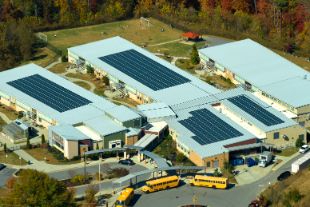
Schools and educational institutions stand to gain substantially from adopting solar energy. The potential benefits range from financial savings to educational opportunities and the promotion of sustainability.
For many schools, energy costs constitute a significant portion of their operational expenses. Installing solar panels can drastically reduce these costs. After the initial investment in the solar system, the energy produced is essentially free, which can result in substantial long-term savings. Furthermore, if the system generates surplus power, it can be sold back to the grid, providing an additional income stream.
Beyond cost savings, solar power installations at schools serve an invaluable educational purpose. They offer a hands-on opportunity for students to learn about renewable energy, sustainability, and the science behind solar power. This real-world application of STEM (science, technology, engineering, and math) concepts can inspire students and enhance their understanding. Some schools even incorporate solar panel data into their curriculum, allowing students to track energy production and consumption.
In addition to their educational value, solar projects help instill an understanding of environmental stewardship in students. By seeing their schools commit to renewable energy, students can appreciate the importance of sustainable practices and environmental responsibility.
Moreover, the presence of solar panels can enhance a school’s reputation by demonstrating a commitment to sustainability. This can make the institution more attractive to environmentally-conscious students, parents, and staff.
Solar energy offers schools and educational institutions both economic and educational advantages. By cutting operational costs and serving as a practical teaching tool, solar power can contribute to a well-rounded, forward-thinking educational experience while promoting sustainability.
Governments and Public Institutions
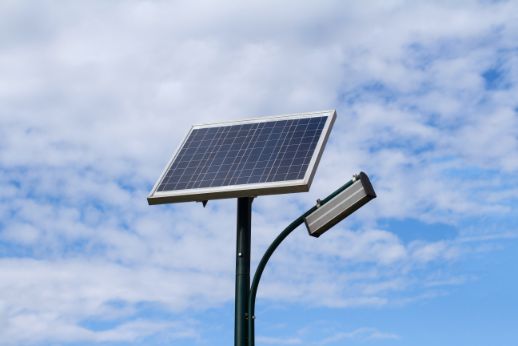
Governments and public institutions at all levels, from local to national, have a significant role to play in advancing solar energy. The use of solar power in public buildings, street lighting, and community projects can not only lead to substantial cost savings but also serve as a powerful symbol of commitment to sustainability.
Public buildings often have high energy consumption due to their size and operational hours. Installing solar panels on these buildings can significantly reduce energy costs. Additionally, solar street lighting can be a more cost-effective and reliable solution in both urban and remote areas. These lights are independent of the power grid, which can lead to further cost savings and increased resilience, especially in areas prone to power outages or natural disasters.
Solar energy projects can also inspire and encourage community members, including homeowners and businesses, to consider solar power. This can lead to a ripple effect, increasing the community’s overall renewable energy usage.
Moreover, governments can earn carbon credits by using solar energy. Carbon credits are certificates issued to countries that reduce their greenhouse gas emissions. Each credit represents the removal or avoidance of one ton of carbon dioxide emissions. These credits can be used to meet climate goals as set by international agreements or traded on international markets, providing a potential revenue stream.
By investing in solar energy, governments can also stimulate economic growth and job creation. The installation, maintenance, and operation of solar systems can create numerous jobs in the renewable energy sector. Furthermore, government-led solar projects can encourage the growth of local solar industries, fostering innovation and technological advancement.
By adopting solar energy, governments, and public institutions can achieve cost savings, stimulate economic growth, inspire their communities, and contribute to global climate goals. Thus, solar energy is not just an environmental decision, but a sound economic and societal one, reinforcing the government’s role as a steward of public resources and the environment.
Nonprofits and Community Groups
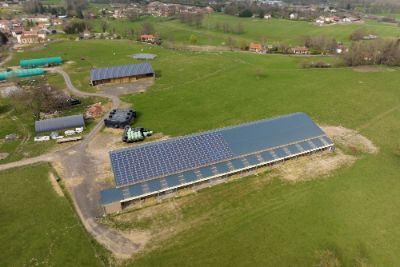
Nonprofit organizations and community groups also stand to reap substantial benefits from adopting solar energy. By installing solar panels, these groups can significantly reduce operating expenses, freeing up resources that can be used to further their mission.
For many nonprofits, utility bills can represent a significant portion of their budget. By switching to solar energy, they can achieve substantial savings on these costs, making more funds available for the services they provide. Moreover, the predictability of solar energy production can aid in budget planning, safeguarding nonprofits against unexpected utility rate increases.
In addition to benefiting from reduced energy costs, nonprofit organizations, and community groups can also play a pivotal role in promoting and expanding access to solar energy within their communities through the development of community solar projects. Community solar programs, also known as solar farms or solar gardens, allow multiple participants to benefit from a shared solar panel system.
Such projects are particularly beneficial for individuals who may not have suitable conditions for solar panels on their properties, or who may not be able to afford the upfront costs of a solar installation. Community members can purchase or lease a portion of the community solar system and receive credits on their electricity bills for the power produced by their share.
Nonprofits can spearhead these projects, creating opportunities for community members to access the benefits of solar power while promoting a sense of community ownership and commitment to sustainability. This not only aligns with many nonprofits’ mission to serve their communities but also contributes to wider environmental goals.
The benefits of solar energy for nonprofits and community groups are manifold. From reducing operational expenses to leading community solar initiatives, these organizations can leverage solar power to enhance their services, support their communities, and promote a more sustainable future.
Environment and Global Ecosystem
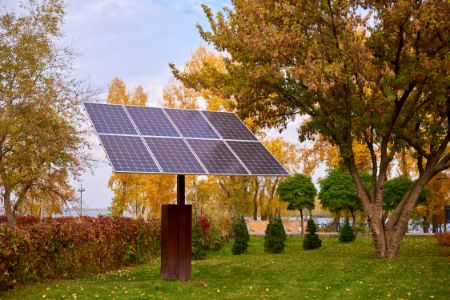
The benefits of solar energy extend far beyond human use; the environment and the global ecosystem at large also gain significantly from the shift towards this renewable resource. As the urgency to mitigate climate change intensifies, the transition to solar energy has become an essential step in preserving the planet.
Solar energy is derived from the sun, an abundant and renewable resource that won’t deplete over time, unlike fossil fuels such as coal, oil, and natural gas. This means that the generation of solar energy can continue indefinitely without the risk of running out, providing a sustainable energy solution for the future.
Another critical advantage of solar energy is that it generates electricity without producing harmful emissions. Unlike conventional energy sources, solar power doesn’t release pollutants such as carbon dioxide (CO2), sulfur dioxide (SO2), and nitrogen oxides (NOx), which contribute to air pollution and climate change. This leads to improved air quality, benefiting both human health and the environment.
By replacing or supplementing traditional energy sources with solar power, we can significantly reduce our carbon footprint. This reduction in greenhouse gas emissions is crucial in mitigating the effects of climate change, including global warming, rising sea levels, and extreme weather events. Solar energy, therefore, plays a key role in global efforts to achieve a more sustainable and resilient energy future.
In addition, solar panels have a relatively low impact on land compared to fossil fuel extraction processes such as mining or drilling. Solar farms can be built on previously degraded land, and they don’t require water for operation, making solar energy a more environmentally friendly option.
The adoption of solar energy is not only beneficial for specific human groups or sectors but is also crucial for the health and longevity of our global ecosystem. By making the shift towards solar power, we can contribute to a cleaner, healthier, and more sustainable world.
Underserved and Remote Communities
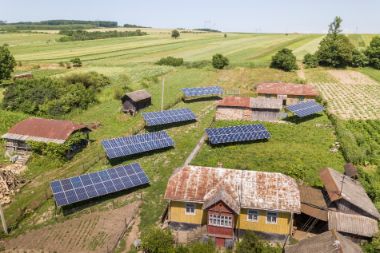
Underserved and remote communities stand to gain significantly from the deployment of solar energy systems. For such regions, where traditional grid electricity is either unreliable or unavailable, solar energy can offer a viable and sustainable solution to their energy needs.
Individual homes can benefit from standalone solar systems, which are often combined with energy storage devices like batteries to provide power even when the sun isn’t shining. These systems can enable households to power appliances, lighting, and other electrical devices, improving the quality of life and increasing opportunities for home-based activities such as studying or running a small business.
Medical facilities in remote areas can also greatly benefit from solar power. Reliable power is critical for the storage of medicines, operation of medical equipment, and provision of emergency services. Solar systems can ensure that these facilities have a constant and reliable power supply, enabling them to provide uninterrupted medical care to their communities.
Schools in remote or underserved areas can use solar power to provide a better learning environment. Access to electricity enables the use of digital learning tools, better lighting for study, and can even power boarding facilities, making education more accessible and efficient.
Furthermore, solar microgrids – localized grids that can operate independently of the main grid – can be established to power entire communities. These systems can provide reliable electricity to homes, businesses, and public facilities, fostering economic development and improving overall living standards.
Importantly, the decentralization of power generation that solar energy allows can be a driving force for local development. It empowers communities to manage their energy resources, potentially leading to job creation, skill development, and local economic growth.
Solar energy can dramatically improve the lives of people living in remote and underserved areas. By providing a reliable, sustainable source of electricity, solar power can support a range of essential services and stimulate local development, bringing about transformative changes in these communities.
Utility Companies

Even traditional utility companies, which have historically relied on fossil fuels, can reap significant benefits from incorporating solar energy into their power generation mix. The addition of solar power can help these companies meet peak demand, improve grid efficiency, and develop more diversified and resilient energy portfolios.
Peak demand, which refers to the periods when consumers use the most electricity, often corresponds to the times when sunlight is most abundant. For instance, on hot summer days, demand peaks in the afternoon due to high air conditioning use, which is precisely when solar panels produce the most electricity. By adding solar power to their generation mix, utility companies can better manage these periods of high demand without resorting to costly and inefficient peaking power plants.
Solar energy can also be harnessed at or near the point of use, such as on rooftops or in community solar projects. This can reduce transmission losses that occur when electricity is transported over long distances from centralized power plants to end-users. By improving the efficiency of electricity delivery, utilities can save costs and provide more reliable service to their customers.
In terms of portfolio diversification, solar energy can help utility companies to mitigate risks associated with fuel price volatility and regulatory changes. Fossil fuel prices can fluctuate widely due to market dynamics, geopolitical events, and other factors. By contrast, once a solar facility is built, the fuel – sunlight – is free and inexhaustible. Furthermore, as governments worldwide implement policies to reduce greenhouse gas emissions, utilities with a substantial renewable energy share are less likely to be impacted by potential carbon pricing or stricter emissions standards.
Finally, solar energy contributes to the resilience of the power grid. In the face of natural disasters or other disruptions, a grid that relies on a variety of energy sources, including decentralized solar power systems, can recover more quickly and effectively than a grid dependent on a few large power plants.
Solar energy offers a host of benefits for utility companies. By integrating solar power into their operations, utilities can improve service reliability, increase grid efficiency, manage demand more effectively, and prepare for a more sustainable and resilient energy future.
Solar energy presents a multifaceted solution to numerous energy-related issues faced by various sectors of society. It reduces reliance on fossil fuels, cuts operational costs, and promotes environmental sustainability. While solar energy adoption may depend on factors such as geographical location, local energy prices, and government incentives, its potential benefits make it a worthy consideration for homeowners, businesses, educational institutions, governments, and beyond. Undoubtedly, the broader adoption of solar energy can contribute significantly to a more sustainable and environmentally friendly future, creating a win-win scenario for both humanity and our shared global ecosystem.
